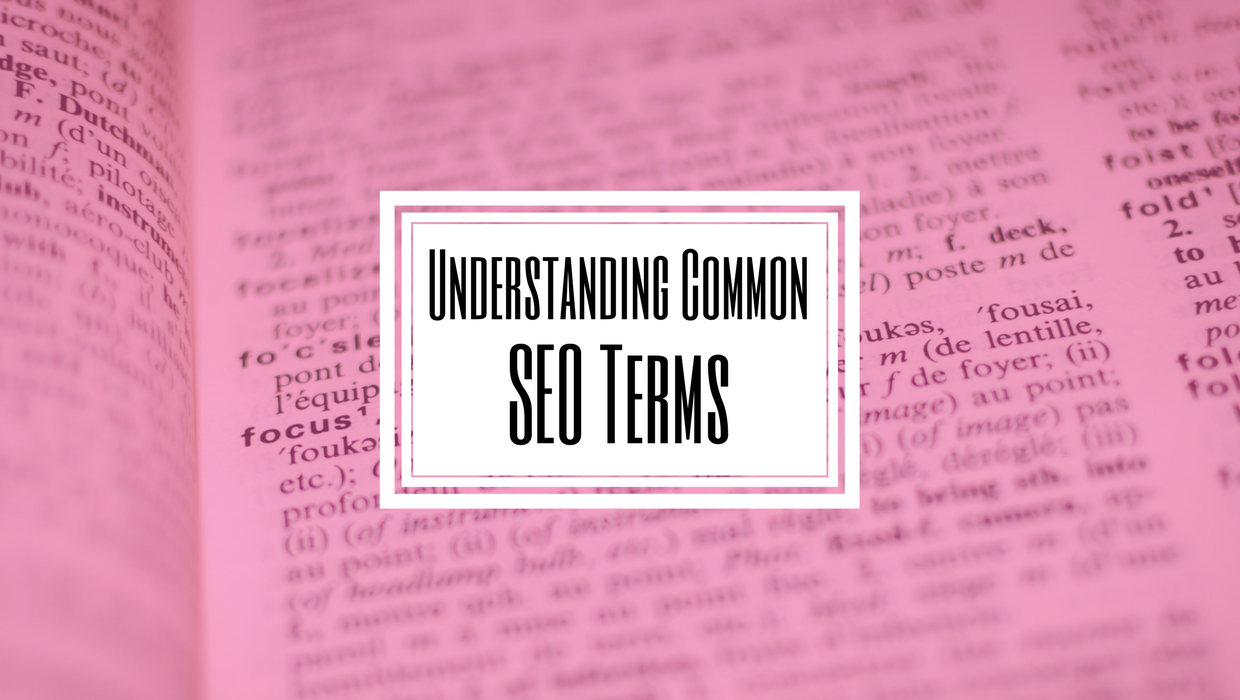The world of search engine optimization and digital marketing is full of terms and acronyms that are so closely related and sound so similar to one another. Even for pros in the industry, it’s easy to get these terms mixed up. To help you better understand SEO here are the most common terms used and what they mean.
SEO: SEO stands for Search Engine Optimization. It’s a digital marketing field and tool used to make your website more visible in search engines. Technical aspects of a website, like alt tags and speed, as well as content, using targeting keywords, are optimized to register for search engines like Google. The goal of SEO is to increase traffic, get higher search engine result rankings, and have more desired action whether that is buying something or sharing something.
CPC: CPC stands for Cost Per Click. Many SEO and digital marketing campaigns using pay per click advertising. These ads are charged based on how many people click on the ads. The price of these clicks is what CPC is. The price, or CPC, of an ad all, depends on what site it is hosted on (such as Google or Facebook), who it is targeting, and what keyword it is related too.
CMS: CMS stands for Content Management System and it is software and applications that support the creation and mortification of digital content. CMS makes it possible for SEO campaigns to alter text, images, and codes on websites. This is incredibly useful for optimizing both technical aspects and content. The most popular CMS currently is WordPress, which is used by both large corporation and individuals.
OBL: OutBound Links, or OBL, are one tool used in SEO campaigns to boost traffic and ranking. It involves posting links to reputable external sites. This gives one’s site authority and drives traffic towards it. It’s important to only use reputable sites, and not spammy or sketchy ones when posting outbound links. Using poor external hosting sites can actually cause search engines to penalize your site.
PPC: PPC stands of Pay Per Click. It is a form of paid advertising used on websites, and typically search engines. These ads place certain websites on the top of the first page of search engine results. They give a quick boost to traffic and ranking but can be expensive based on the length, search engine, and keywords. Many SEO campaigns will use PPC to help give an initial boost.
ROI: Return on Invest, commonly shorted to ROI, is a term used in the business world. When a company invested in an SEO and digital marketing campaign they expect to see results in return. ROI measures how much a company gets back (usually in terms of money but not always) based on how much they put in.
SEM: SEM is Search Engine Marketing. SEM is a more umbrella term that SEO would fall under. It encompasses SEO and PPC ads. The main goal of SEM is usually to increase the ranking of a website or increase traffic.
SMM: SMM, or Social Media Marketing, has become more important in the past years. People spend about a third of all time on the Internet using social media. Sites like Facebook, Twitter, Instagram, and Snapchat have huge power. SMM is about utilizing profiles to reach audiences while they are using these sites. Social media marketing, digital marketing, and SEO are often used all together to get the best results.
SERP: SERP stands for Search Engine Results Page. When you search up a term or keyword in a search engine the results that appear are SERP. For example, searching “Coffee Shop” in Google will give you thousands of pages and links. What SEO does is try to get higher-ranking results on search engine results pages. Most people don’t click past the first page which is why appearing on it is so important.
There are countless other terms related to marketing, SEO, and the digital landscape. These are the most commonly used and important ones though to give you a basic understanding of what SEO and digital marketing are. Contact us if you have any questions or are interested in knowing how SEO could benefit you.

